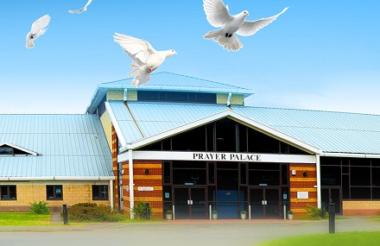A Christian charity lost £3.9m after handing millions to a former trustee to speculate on foreign exchange transactions, according to a Charity Commission report published today.
The Charity Commission has been investigating Kingsway International Christian Centre since 2011 after trustees handed £5m to one of their colleagues to invest, without taking proper advice. The ex-trustee told colleagues he was licensed by the Financial Services Authority, the then-regulator for financial services, but in fact he did not have the proper licences. He promised a return of 55 per cent per annum but returned only a small portion of the cash.
The trustee, who resigned from the board in May 2011, has since agreed to return £6.9m – the original money plus an expected return – under an individual voluntary agreement. The trustee paid back just under £342,000 but has since been declared bankrupt and the charity is unlikely to see any more of the money.
The regulator later appointed an interim manager to the charity, which has 19 places of worship and a 24 acre facility in Kent. The trustees who agreed the investment have all been replaced. The commission said that these trustees had not taken proper advice or properly managed conflicts of interest. Nor had they properly followed their own investment policy or properly safeguarded the charity’s assets.
Michelle Russell, director of investigations, monitoring and enforcement at the Charity Commission, said: “This case is a reminder that trustees must ensure that they do not permit any personal associations to interfere inappropriately with their judgement as charity trustees and that any decisions they make are in the best interests of their charity.
“When trustees are considering a high risk decision, particularly one involving significant sums of money, they should take independent professional advice from properly qualified persons to ensure that they are not exposing the charity to significant risk. Donors and beneficiaries have a right to expect trustees to take appropriate steps to protect property of the charity.”
“We make clear in our policy and guidance that where trustees are reckless and make poor decisions that are not in the best interests of the charity and result in significant losses, the Commission will ensure that they are held to account. It was appropriate that in this case the charity pursued restitution to recover or repay the losses against the trustees who made these decisions.”
A spokesman for the charity said: "The current trustees accept the report of the commission and acknowledge the seriousness of the mistake that was made. The trustees at that time believed they were acting in the best interests of the charity and have not benefitted personally.
"We are speaking of events that happened seven and a half years ago. None of the current trustees were involved in the decision making regarding the investments with the now ex-trustee. Since then, we have worked with the commission, and our professional advisors, to put robust controls in place that would prevent any reoccurrence.
With the benefit of hindsight it is clear that the former trustees’ decision to invest was not a prudent one but was done in good faith. The charity has since continued to operate and successfully carry out its charitable objectives to the community and looks forward to continuing to do so."
Related articles
Interim manager appointed to Christian charity after trustee fails to pay back misjudged investments
The Charity Commission has appointed an interim manager to an evangelical church after a former trustee was allowed to invest - and lose – the charity’s money in foreign exchange speculation.










